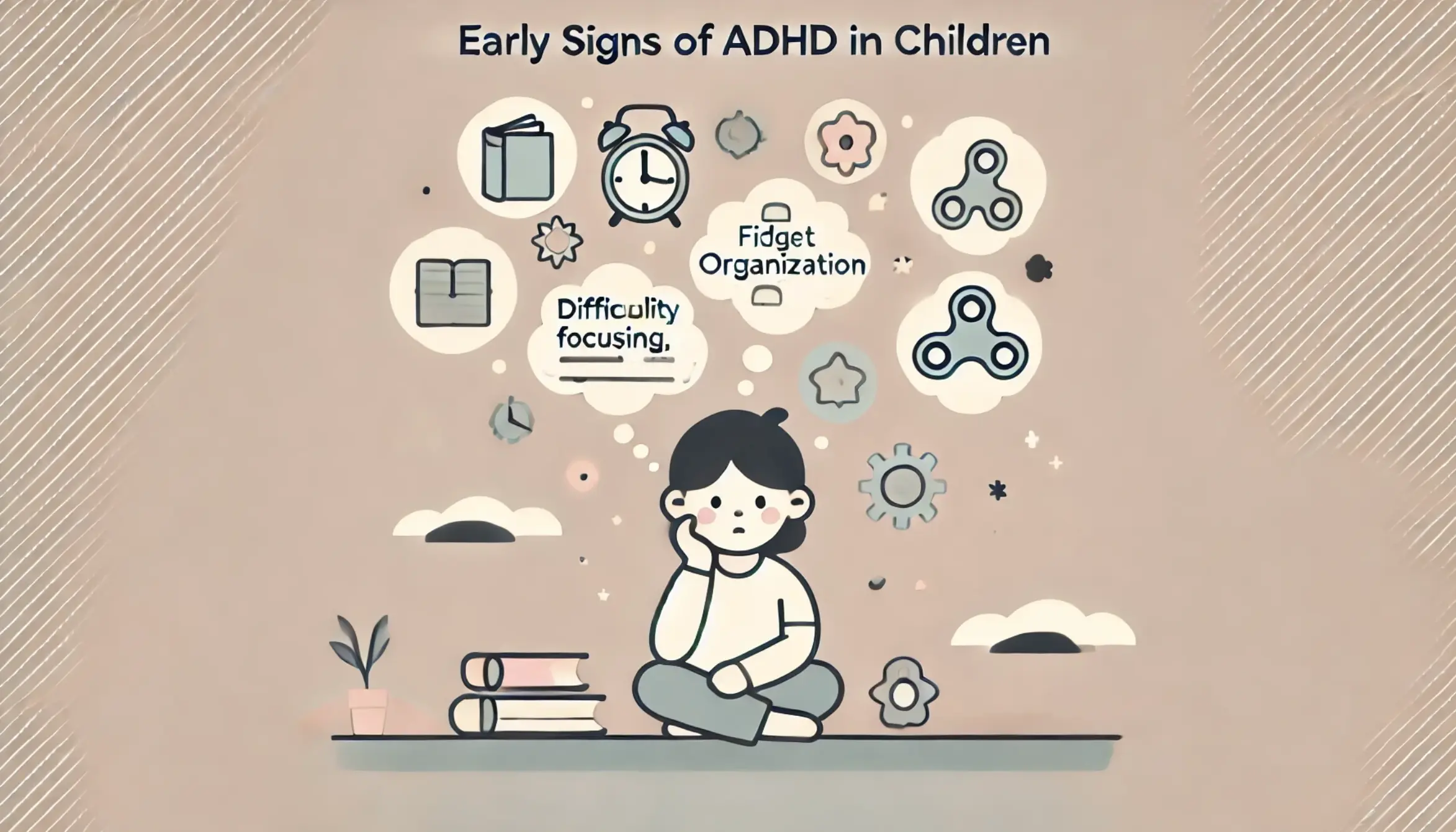Navigating barriers to autism services presents a multifaceted challenge that demands a comprehensive and empathetic approach.
Individuals with autism spectrum disorder (ASD) often encounter obstacles ranging from limited accessibility to specialized care, insufficient awareness, and societal stigmas.
Overcoming these challenges requires a concerted effort from policymakers, healthcare professionals, and the community. Creating a more inclusive environment involves enhancing educational resources, fostering awareness campaigns, and promoting early intervention strategies.
Families and caregivers are crucial in advocating for improved services, emphasizing the need for personalized and culturally sensitive support.
Join us on this enlightening journey as we explain the complexities of navigating autism and access to healthcare and foster a deeper understanding of the path toward overcoming these challenges.
Deciding When to See a Doctor
Deciding whether symptoms warrant a doctor’s visit can be daunting as individuals grapple with the complexity of obtaining a neurodevelopmental evaluation. The ambiguity surrounding symptoms may often lead to uncertainty, causing hesitation in seeking professional medical advice.
Factors such as the perceived severity of symptoms, previous health experiences, and the fear of potential diagnoses contribute to the difficulty in making this decision.
Sometimes, individuals may downplay symptoms, attributing them to temporary issues or self-diagnosing through online sources.
However, the challenge lies in recognizing when symptoms may indicate a more serious underlying condition requiring professional evaluation.
Encouraging health literacy, providing accessible information, and fostering open communication with healthcare providers can empower individuals to make informed decisions about seeking medical attention. Addressing the difficulty in navigating this decision-making process is crucial for timely interventions and better overall health outcomes.
Struggling to Communicate Effectively with Your Doctor
Communicating with a doctor can prove challenging for many, creating potential barriers to accessing proper healthcare. Patients often face difficulty articulating their symptoms and concerns or understanding medical jargon.
Limited time during appointments and the pressure to convey complex information concisely exacerbate these challenges.
Some individuals may feel intimidated or hesitant to ask questions, hindering the exchange of crucial information. Language barriers, cultural differences, or health literacy disparities may impede communication.
Bridging this gap requires a collaborative effort between healthcare providers and patients, emphasizing active listening, empathy, and clear, patient-friendly communication.
Encouraging open dialogue, employing interpreters when needed, and using accessible materials can enhance understanding. Empowering patients to express themselves fosters a more patient-centric approach, ultimately improving healthcare outcomes and building a trusting doctor-patient relationship.
Scheduling Appointments via Phone

Using the telephone to book appointments is common practice, yet a potentially challenging process for some individuals. Navigating automated systems, extended hold times, and selecting menu options can create frustration and impede efficient scheduling.
Furthermore, individuals may experience anxiety or difficulty expressing their healthcare needs over the phone, leading to potential miscommunication. Some may prefer online booking systems for convenience or need help coordinating schedules with the limited availability provided during a phone call.
To add to this experience, healthcare providers should prioritize simplified phone systems, offer alternative booking methods, and provide clear instructions. In addition, fostering a patient-friendly approach with empathetic and well-trained staff can alleviate concerns and ensure a smoother appointment scheduling process, ultimately improving accessibility and patient satisfaction.
The Waiting Room Environment

The waiting room environment in healthcare settings significantly influences the overall patient experience. A well-designed and comfortable waiting area can alleviate stress and contribute to a positive perception of healthcare facilities.
Elements such as ample seating, soothing colors, and adequate lighting can create a calming atmosphere, fostering a sense of ease for patients. Access to informative materials, like health brochures or digital screens with relevant content, can engage and educate individuals during their wait.
However, a poorly managed waiting room with overcrowding, limited seating, or outdated decor may evoke anxiety and frustration. Healthcare providers should prioritize creating a welcoming space that reflects empathy and understanding, acknowledging the potential vulnerability of patients.
By optimizing the waiting room environment, healthcare facilities can enhance the overall patient experience. A good environment positively impacts the well-being and perception of the quality of care provided.
Feeling Misunderstood
Not feeling understood, especially in healthcare interactions, can profoundly affect an individual’s well-being and trust in the system. Effective communication is vital in addressing this concern.
Patients may experience frustration when healthcare providers fail to grasp the nuances of their symptoms, concerns, or emotional states.
Healthcare professionals must be active listeners, ask clarifying questions, and demonstrate empathy to ensure patients feel heard and validated. Language barriers, cultural differences, and rushed appointments can further contribute to this sense of not being understood.
Encouraging an open and non-judgmental environment where patients feel comfortable expressing themselves fosters a trusting relationship.
By prioritizing communication skills and cultural competence, healthcare providers can bridge the gap and create a more inclusive, patient-centered care experience, ultimately improving healthcare outcomes.
Acknowledging and addressing the feeling of not being understood is essential for building trust and enhancing the quality of healthcare interactions for people with autism spectrum disorder.
Extended Waiting Time for Appointments
Experiencing a prolonged wait to secure a medical appointment can be a frustrating and concerning aspect of healthcare. Delays may arise due to high demand, limited provider availability, or administrative challenges.
Extended wait times can exacerbate health anxieties, allowing conditions to potentially worsen before receiving attention. In addition, delayed access to care may lead to increased stress and dissatisfaction among patients. Healthcare systems should prioritize efficient appointment scheduling, employing technology to streamline the process and reduce waiting periods.
Clear communication about expected wait times, alternative resources, and urgency levels is crucial to managing patient expectations. By addressing the issue of prolonged waits, healthcare providers can enhance patient satisfaction, improve health outcomes, and demonstrate a commitment to timely and accessible care.
Proactive measures to optimize appointment scheduling systems contribute to a more patient-centric healthcare experience, ultimately benefiting patients and healthcare providers.
Consequences Of These Barriers
The consequences of barriers in healthcare, such as difficulties accessing services, communication challenges, and long wait times, are multifaceted and impactful. Individuals facing these barriers may experience delayed diagnoses, leading to the progression of health conditions and poorer outcomes.
Mental health may be adversely affected due to stress and frustration associated with navigating these obstacles. Persistent communication challenges can result in misunderstandings, potentially compromising the effectiveness of treatments. Prolonged wait times for appointments contribute to increased patient anxiety, hinder preventive care, and strain the overall healthcare system.
Additionally, disparities in access disproportionately affect vulnerable populations, exacerbating health inequalities. As a cumulative effect, these barriers diminish patient satisfaction, erode trust in healthcare systems, and hinder timely and equitable care delivery. Recognizing and addressing these barriers in autism is essential because it prioritizes accessibility, effective communication, and prompt service delivery.
APS Offers Specialized Autism Evaluations in Oakland
The pervasive barriers in healthcare, encompassing difficulties in accessing services, communication challenges, and prolonged wait times, necessitate urgent attention to a more patient-centric and equitable system.
These obstacles impact individual well-being and contribute to broader health disparities. Recognizing the consequences of these barriers is a crucial step toward implementing comprehensive reforms prioritizing accessibility, effective communication, and timely care.
Healthcare providers must proactively address these issues, fostering an environment that values inclusivity and understands each patient’s unique needs.
For those seeking autism evaluations in Oakland, CA, contact Ability Psychological Services for autism evaluations. By offering specialized and accessible services, organizations like APS play a vital role in overcoming barriers, ensuring individuals receive the timely and tailored support they require.
We can forge a path towards a more compassionate and effective world through awareness, advocacy, and improved healthcare practices!






